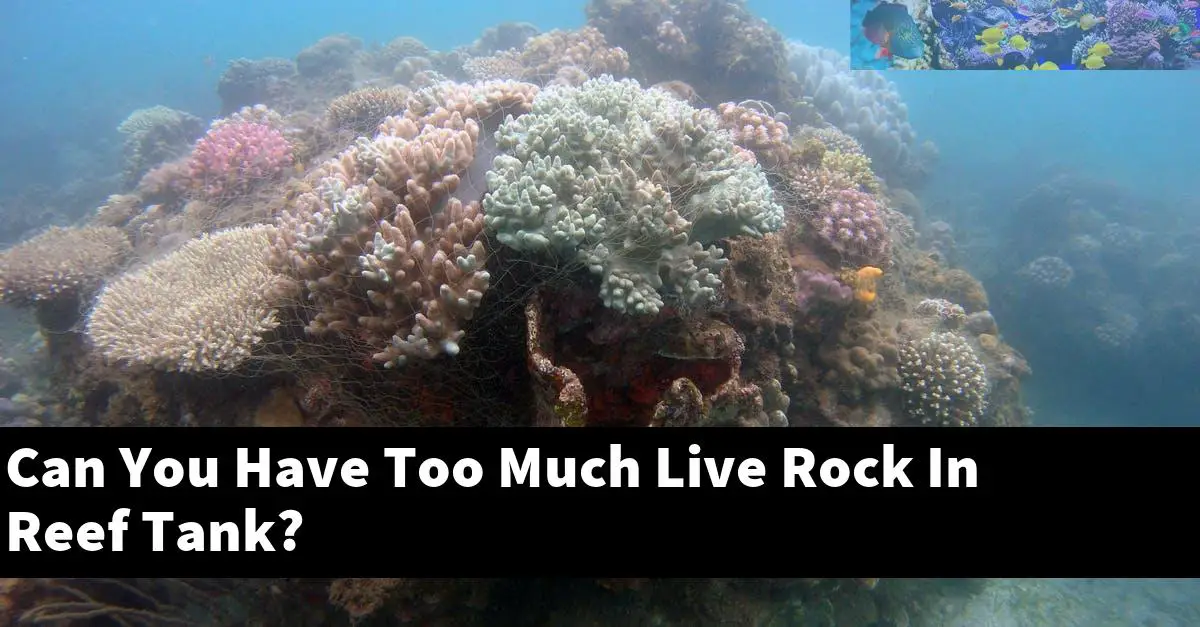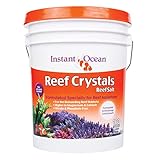It depends on a number of factors, including the size of the tank, the type of live rock, and the other inhabitants of the tank. In general, however, it is generally safe to say that more live rock is better than less and that a reef tank with a large amount of live rock will be more successful than one with a smaller amount.
Can you have too much live rock in a reef tank?
Live rock is an essential component of a reef tank and can provide a wide variety of benefits to the tank, but it can also be a potential source of stress for the aquarium inhabitants. Live rock can be a food and shelter source for many reef fish and other invertebrates and can help to keep the aquarium clean and healthy.
However, too much live rock can increase the risk of disease and can also be a nuisance to aquarium inhabitants. It is important to consider the size and type of live rock before adding it to a reef tank and to monitor the tank regularly to ensure that the live rock is not becoming too large or dense.
What are the benefits of having live rocks in a reef tank?
There are many benefits to having live rocks in a reef tank. A live rock provides a diversity of habitats for coral and other invertebrates and helps to keep the tank clean by removing debris.
Instant Ocean Reef Crystals Reef Salt, Formulated Specifically For Reef Fish Tank Aquariums
$66.70 (as of July 25, 2024 06:52 GMT +03:00 - More infoProduct prices and availability are accurate as of the date/time indicated and are subject to change. Any price and availability information displayed on [relevant Amazon Site(s), as applicable] at the time of purchase will apply to the purchase of this product.)API REEF MASTER TEST KIT Reef Aquarium Water Test Kit 1-Count
(as of July 25, 2024 06:52 GMT +03:00 - More infoProduct prices and availability are accurate as of the date/time indicated and are subject to change. Any price and availability information displayed on [relevant Amazon Site(s), as applicable] at the time of purchase will apply to the purchase of this product.)Instant Ocean Reef Crystals Reef Salt For 50 Gallons, Enriched Formulation For aquariums
Live rock also helps to create a strong and stable reef environment.
Does live rock help to control algae growth in reef tank?
Algae is a common problem in reef tanks and can be caused by a variety of factors. One of these factors is the presence of live rock.
Live rock is a type of coral that is encased in a hard, calcified skeleton. This skeleton can provide a home for algae and other organisms that can contribute to the growth of algae.
While live rock does help to control algae growth, it is not the only factor that is important. You also need to make sure that your tank is kept clean and free of debris.
Algae can grow even in clean tanks if there is enough light and nutrients available.
How does live rock provide nutrients for coral growth in reef tank?
Live rock is a type of coral reef substrate that is composed of marine sediments and other organic matter. The primary function of live rock is to provide nutrients for coral growth.
The live rock provides coral with a safe place to grow and reproduce, as well as a source of food. The coral can attach itself to the live rock and extract nutrients from the surrounding water.
What is the best way to set up a live rock aquarium in a reef tank?
There are many ways to set up a reef tank, but the best way to set up a live rock aquarium depends on the type of reef tank you have and your personal preferences. A few tips to follow when setting up a reef tank include choosing a healthy and diverse stock of live rock, choosing a good lighting system, and creating adequate water chemistry.
How often should you change your live rocks in a reef tank?
The frequency at which you should change your live rock in a reef tank depends on a number of factors, including the type of rock, the size of the rock, and the environment of the tank. In general, you should change your live rock every two to four weeks.
However, depending on the type of rock and the tank environment, you may need to change your live rock more frequently.
What are some of the problems that can occur if you have too much live rock in reef tank?
Live rock is an essential component of any reef tank, as it provides a home for coral, fish, and other invertebrates. However, over-fertilization of live rock with marine plant food can lead to excessive growth and eventual coral bleaching and death.
Additionally, over-feeding can cause fish to become obese and develop diseases, and can also lead to the depletion of important nutrients in the rock. Finally, over-crowding of the rock can lead to the formation of stressed coral and other invertebrates, and can also create an inhospitable environment for the fish.
Summary
The size of the tank, the type of live rock, and the number of other inhabitants are all important factors in a reef tank. A reef tank with a lot of live rock will be more successful than one with less.





















